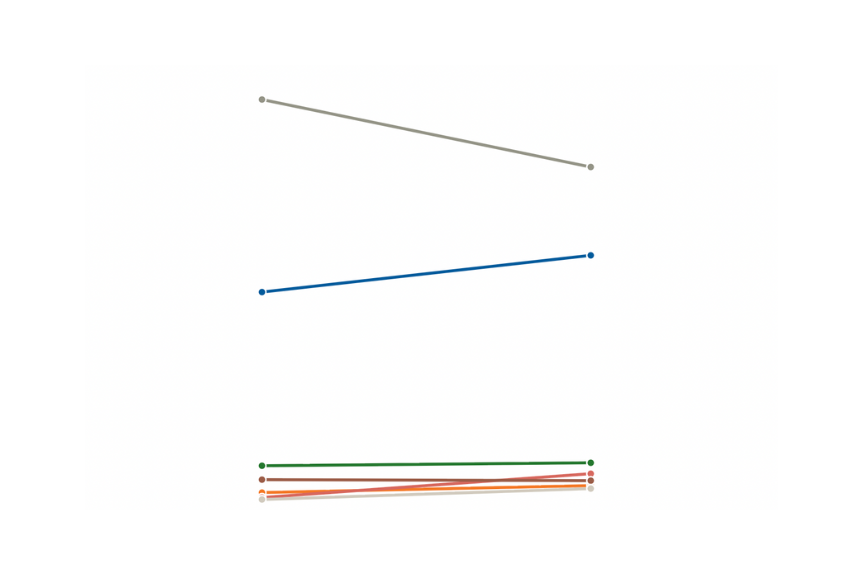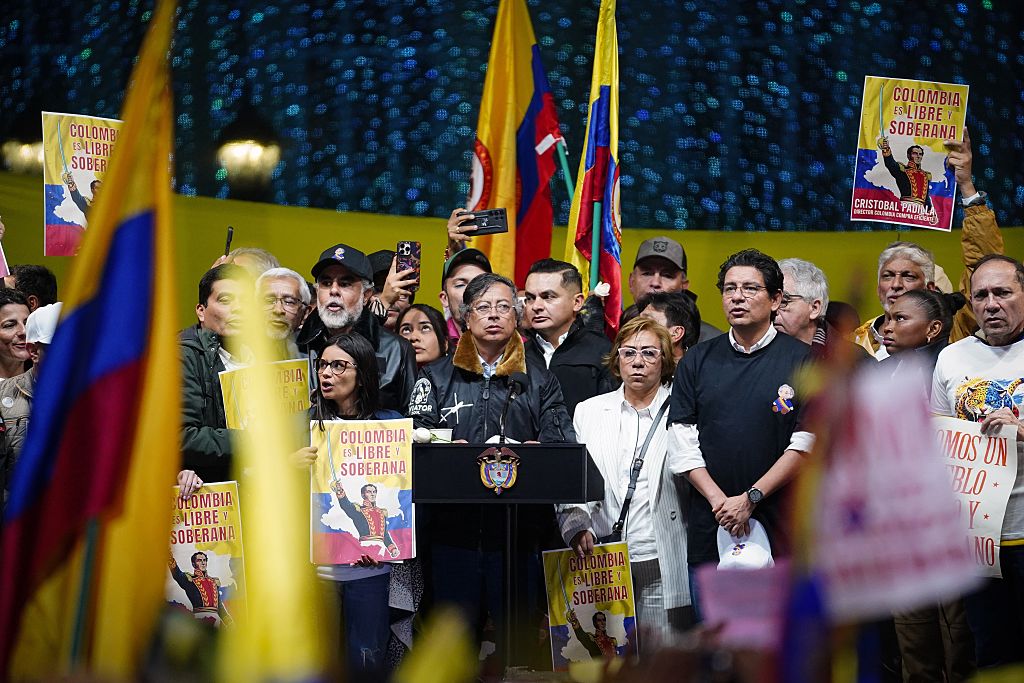Brazil Update: Tight Race for the Presidency
Brazil Update: Tight Race for the Presidency
President Inácio Lula da Silva's protogé Dilma Rousseff and rival José Serra poll neck and neck as the race heats up for Brazil’s October election.
Brazilians head to the polls on Sunday, October 3, to choose a new president who will lead the country for the next four years. The top contenders are Dilma Rousseff of the Worker’s Party (PT) and José Serra of the Brazilian Social Democratic Party (PSDB). A third candidate, Marina Silva of the Green Party (PV), trails third in the polls but could be a key player in the likely scenario that neither of the frontrunners wins the requisite 50 percent of ballots in the first round. If necessary, the runoff would be scheduled for October 31.
Rousseff began closing a 20 percent gap with Serra starting in December. However, for the past three months, the two have been technically tied in the polls. One recent survey shows Rousseff ahead by eight points, but another places Serra on top by just one percentage point. Marina Silva, who has been gaining ground, polls at 10 percent.
President Luis Inácio Lula da Silva handpicked Rousseff as his successor. She worked as a member of his cabinet since the beginning of his presidency in 2002, first as minister of Energy and Mines and then as chief of staff starting in 2005. If elected, she will be Brazil’s first female president. Prior to serving in the president’s cabinet, Rousseff worked for the city of Porto Alegre’s Treasury Department and for the state of Rio Grande do Sul as state secretary of Energy. She was also active in the restructuring of the center-left Brazilian Labor Party after the end of the military dictatorship in the 1980s.
Rousseff has never been elected to public office, but she now rides high on Lula’s popularity and promises to continue his policies. As she said: “President Lula left me a legacy—to take care of the Brazilian people. I am going to be a mother for all the Brazilian people.” Observers expect her to maintain market friendly economic policies paired with continued federal intervention in the economy. Internationally, she’s expected to pursue a left-leaning agenda, keeping close ties with Venezuela’s Hugo Chávez and the Castro government in Cuba, as well as to work closely with emerging markets.
Until March 2010, Serra was the governor of the state of São Paulo, the most industrialized state in the country, accounting for over 31 percent of the Brazilian GDP. A U.S.-trained economist with a doctorate, he has been a congressman and a senator, as well as the mayor of São Paulo (2004-2007). He also served as planning minister (1995-1996) and health minister (1998-2002) under President Fernando Henrique Cardoso.
Serra disputed and lost the presidency to Lula in 2002. Considered a center-right pragmatic administrator with pro-market views, the PSDB candidate would continue Lula’s subsidy programs targeting the poor but favors less economic intervention. Serra has
been stepping up his criticisms against the Lula administration, questioning Brazil’s alignment with countries such as Venezuela and Iran. Given the state of the economy and the popularity of the current president, Serra could have a difficult time trying to convince voters that he represents a better alternative to Rousseff’s continuity.
Green Party candidate Marina Silva is a former senator and world-renowned environmentalist. Silva, who stepped down as Lula's environment minister in May 2008, proposes to cut taxes and social security benefits, urging a reform of the country's costly pension system. The PV candidate also indicated that she would continue many of Lula’s policies, such as poverty reduction programs. Rather than promoting handouts, she has pledged to encourage mobility through better education and more job opportunities.
Lula's Campaign?
In little over six months, Rousseff has surged in the polls, increasing the chances that the PT will remain in power. There are two explanations behind Rousseff’s rising support: the economy and Lula’s huge popularity, which is now close to 78 percent. Brazil has been steadily growing in recent years while keeping inflation low, allowing 13 million people to rise out of poverty from 1995 to 2008. In the midst of the global economic crisis, the country recorded only a mild slowdown. Its economy is expected to grow at around 7 percent this year, which could lead to the creation of thousands of new jobs. Moreover, expanded subsidy programs for low-income families, particularly in the north of the country, has made President Lula hugely popular and helped Rousseff boost her numbers as she promises to continue Lula’s policies and efforts.
But Lula’s involvement in the presidential race has raised eyebrows. He has used his political influence to promote and openly campaign in favor of his chosen candidate, earning him several fines from the electoral authority. He is now under the investigation of the deputy electoral attorney general, Sandra Cureau, who is studying the possibility of an action before the Brazilian Federal Election Commission against Lula for abuse of political and economic power. In that case, President Lula would garner additional fines and face sanctions, such as the inability to pursue public posts for as many as eight years.
In Brazil, presidents can endorse candidates, but what seems less clear is to what extent. PT lawyer Márcio Luiz Silva argued that the president can campaign when the event is not financed or organized by the federal government. He has also said that, as an affiliated member of the PT, Lula has the right to participate in campaign events in support of his candidate.
What's Next?
Although television debates and radio commercials do not start until August 17, many of the candidates have begun debating online, as well as hosting campaign rallies. However, Rousseff said she would only participate in four of several planned presidential debates on television, prompting opponents and other analysts to posit that she is ill prepared for debates with Serra and Silva. Rousseff countered that her tight agenda limited her availability for debates and she would be open to interviews in Brasilia.
In spite of the debate dispute, many analysts forecast that, barring a very poor performance in the debates or a major gaffe in what’s left of the campaign, Rousseff will emerge the victor in October.








